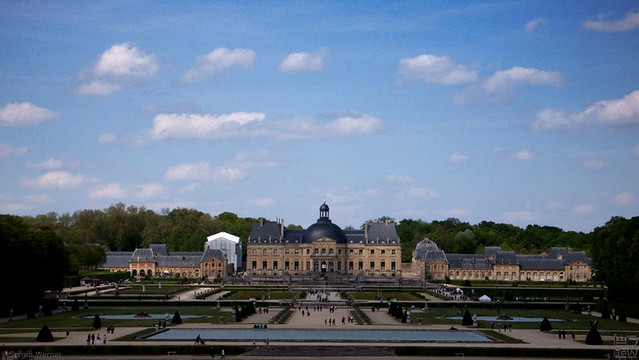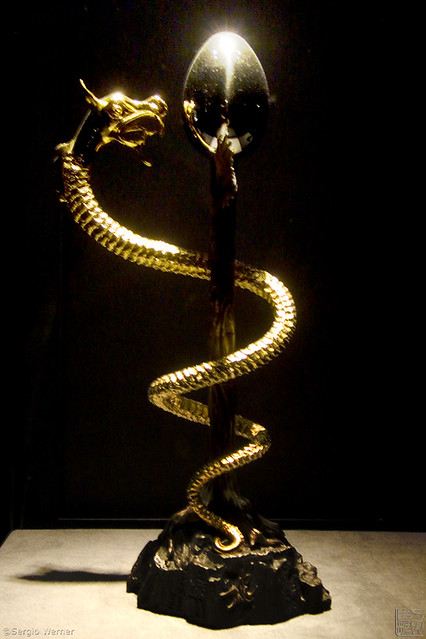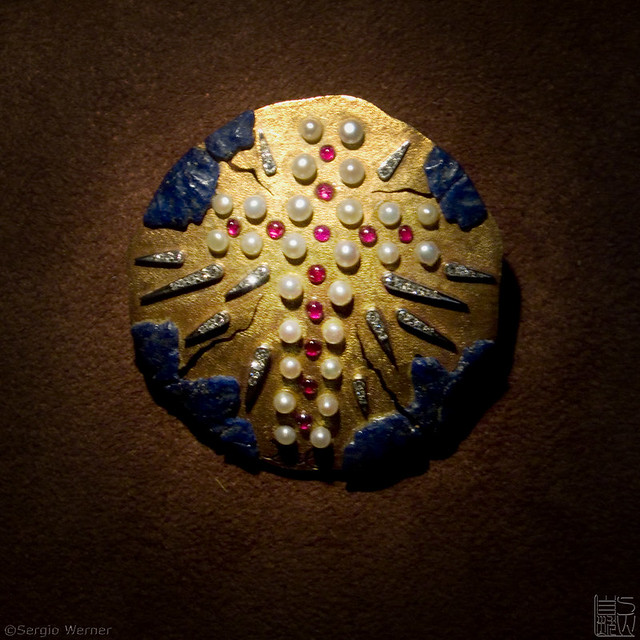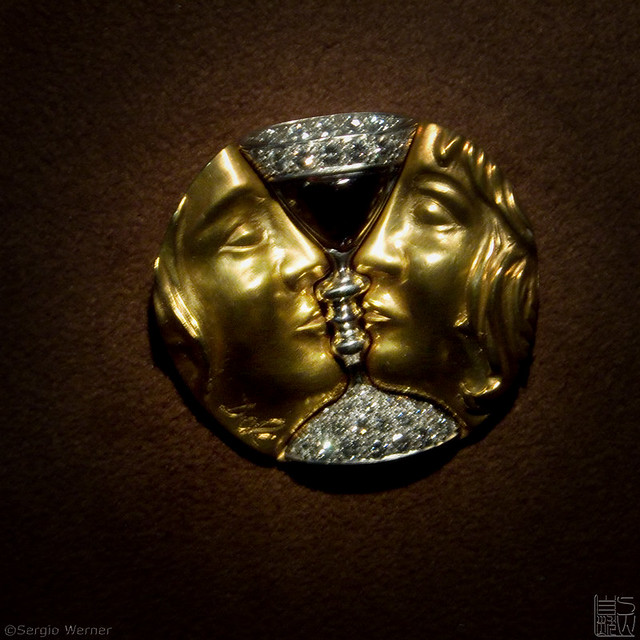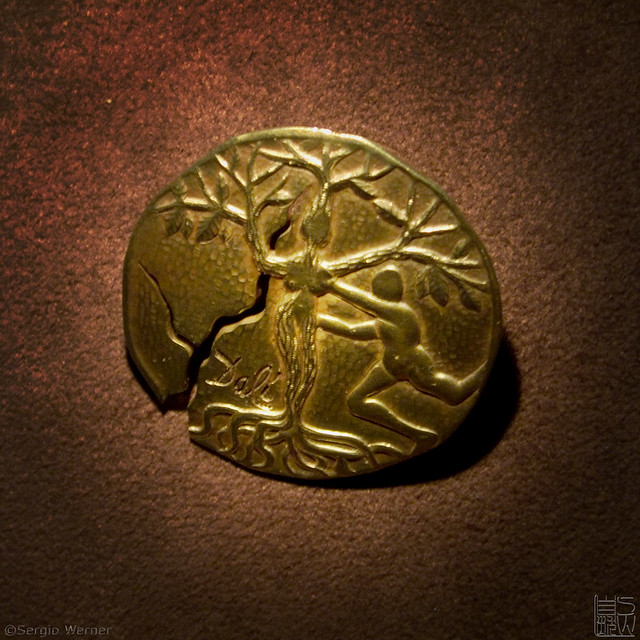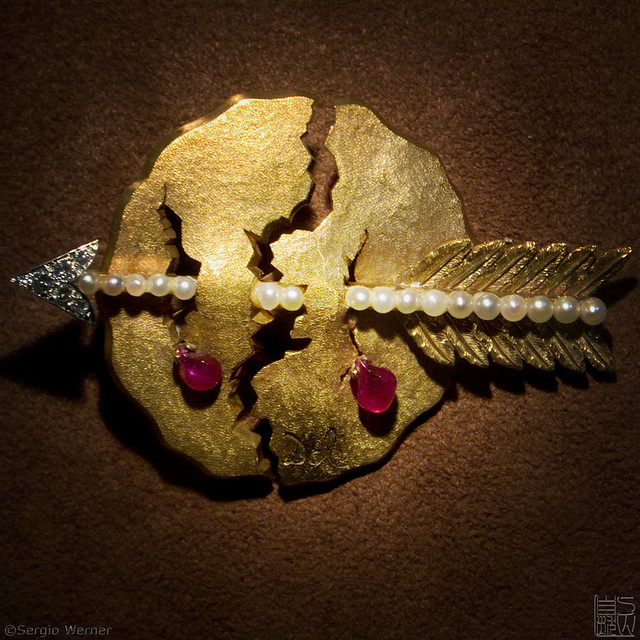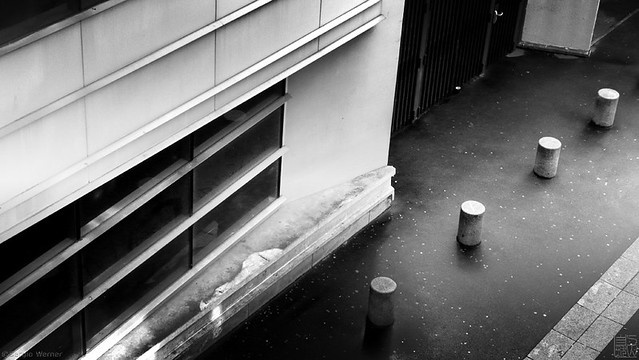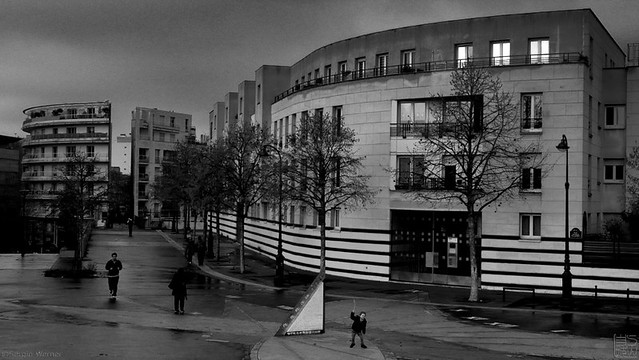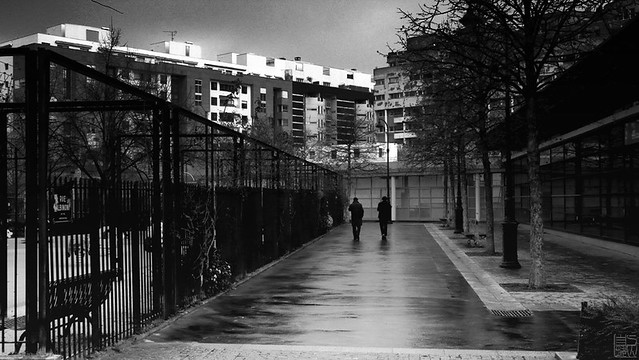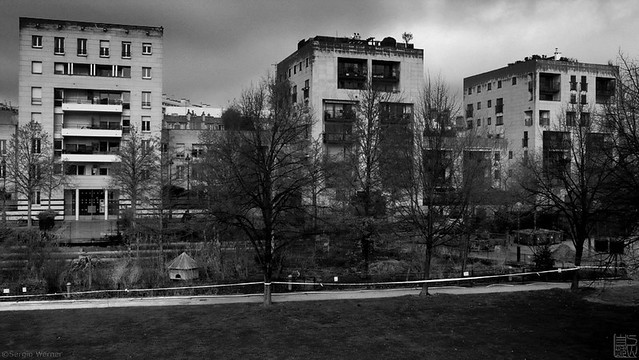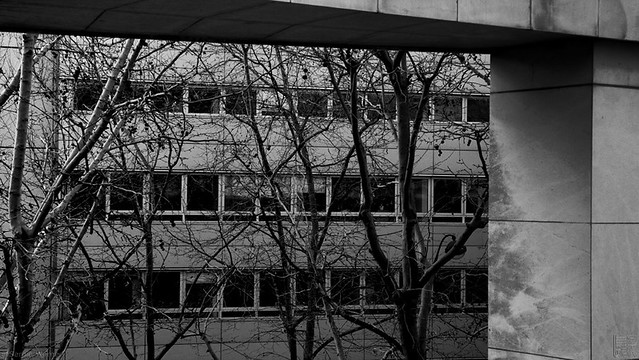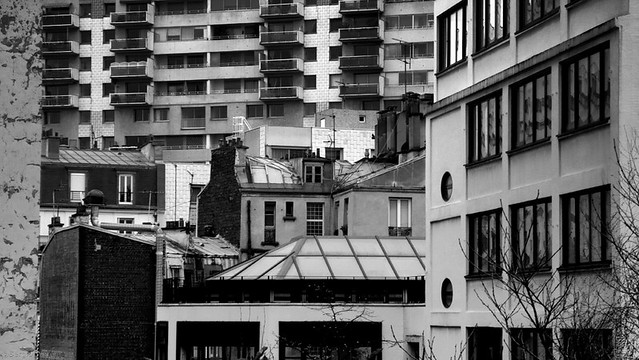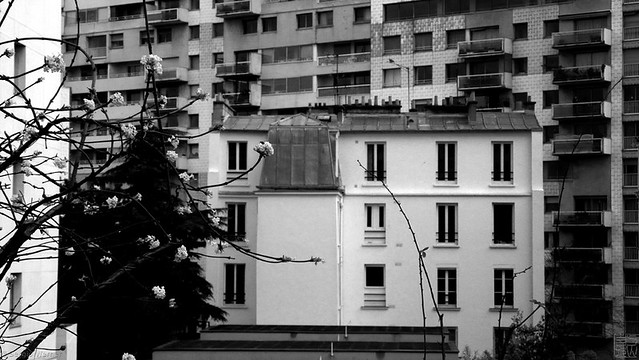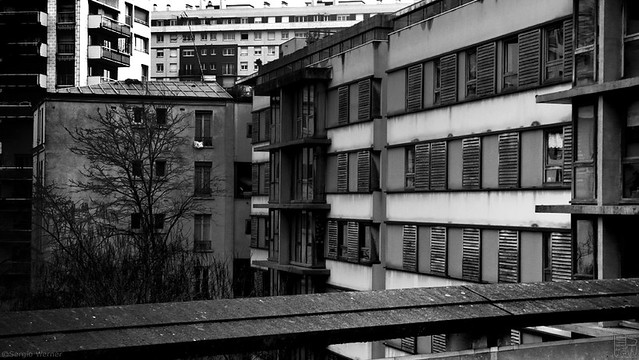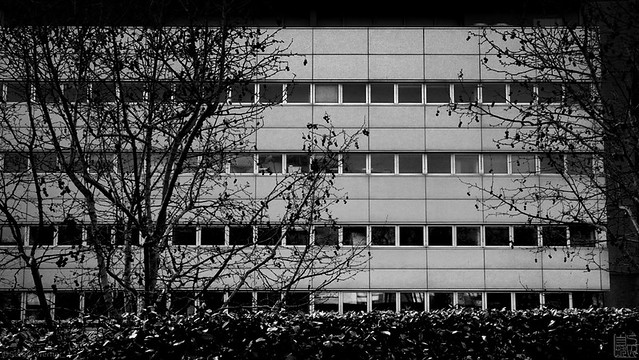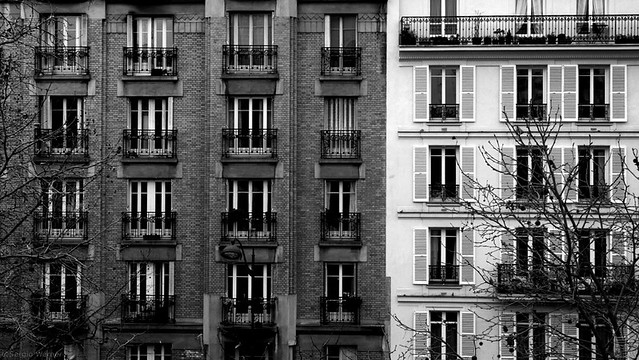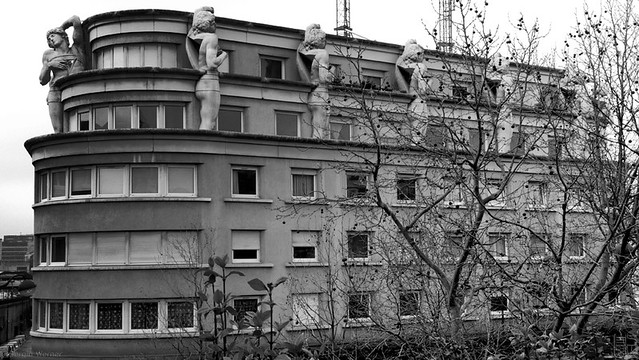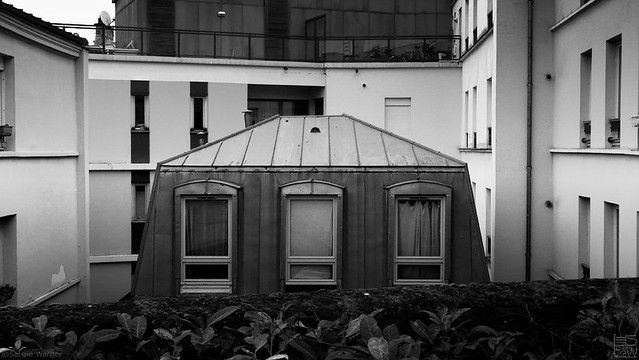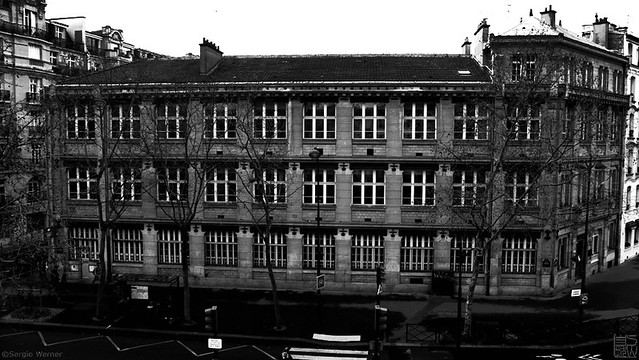
30 December 2014
29 December 2014
18 December 2014
11 December 2014
desejo
Só o desejo não passa
e só deseja o que passa
e passo meu tempo inteiro
enfrentando um só problema:
ao menos no meu poema
agarrar o passageiro.
e só deseja o que passa
e passo meu tempo inteiro
enfrentando um só problema:
ao menos no meu poema
agarrar o passageiro.
20 November 2014
立秋や旅止まくと思ふ間に
autumn begins--
I thought by now this journey
would've ended
translated by david g. lanoue
14 November 2014
2 November 2014
1 November 2014
23 October 2014
山は虹いまだに湖水は野分哉
rainbow over the mountain
yet on the lake
an autumn gale
translated by david g. lanoue
16 October 2014
9 October 2014
7 October 2014
4 October 2014
2 October 2014
30 September 2014
25 September 2014
23 September 2014
18 September 2014
16 September 2014
13 September 2014
11 September 2014
9 September 2014
4 September 2014
短夜をよろこぶとしと成にけり
short summer nights--
I've grown old enough
to love them
translated by david g. lanoue
2 September 2014
31 August 2014
des nuages dans les mains | blanc
Ce désespoir confus
Source impalpable nuit de pluie
Loin des feuilles naissantes
Loin des larmes salubres
Ce dédain de l'orient
Ce paradis livide
Cette marche en arrière
Incrédule exténuée
Vers quelques souvenirs
Le remède miracle accord cadeau confiance.
26 August 2014
23 August 2014
21 August 2014
19 August 2014
14 August 2014
雨三粒 | three raindrops
雨三粒天から土用見舞かな
three raindrops
a greeting card from heaven...
midsummer heat
translated by david g. lanoue
12 August 2014
10 August 2014
In general we do not have as many pictures of our parents as we have of our children. I have of course no basis for saying this, it is just an inference from the pictures I have from my son and those I have from my father. I can fill photobook after photobook with my boy's pictures, from my father I have a good handful left. And my preferred are the ones I took myself, later in his life.
Pictures are poor conveyors of memory, anyway. Recollections work in subtler ways than that. The ones I have from my father come more vivid when his music is up. His musical signature is recognizable, even by people that did not know him for long.
For one thing, he did not go for a wide selection. I cannot go further than a handful of names: Dave Brubeck, Stéphane Grapelli with Oscar Peterson, Stan Getz, Sinatra. And from Sinatra, a narrow selection, the albums with the Count Basie Orchestra, the one with Tom Jobim. From time to time he would take in some Armstrong and Glenn Miller.
***
Once in a business trip I met this guy named Joe. Joe has a broad smile, weighs twice as me, goes to the church every sunday morning, sings in the choir. He lives somewhere in Georgia, and he told me family stories about the civil rights movement from back then. We lost contact soon after finishing business together. Like many other people I met, I would have kept only some vague sympathetic recollections if we haven't sit down one day and chatted about music.
We discussed about Wilson Pickett and Otis Redding. About legendary shows in the Apollo theater in the sixties. About my visit to Graceland and more important to the Sun studios. And Booker T. and the M.G.s, the Drifters, and about the old legends of blues, and Sonny Terry. He was for Motown, I was an Atlantic-Impulse guy. I was immensely happy to find someone that had lived in that culture and knew it from within, he was impressed that this skinny white guy from Brazil could sustain any conversation on the topic.
I worked voluntarily five years on the university radio as a volunteer, and most of what I discussed with him I had put on air. I actually discovered the stuff through some Rhythm and Blues anthologies from the Atlantic label. And what pointed me to that was a box called "Atlantic Blues". I took those vinyls from my father's collection, he never actually claimed them back. And they are pretty good stuff. I never knew how or from whom he got them. I don't remember ever seeing him listening to them. But I can track my whole musical taste back to that specific box.
***
After I left university and got some assurance on my musical tastes, I tended to find my father's selectionrather stiff. How come there was no Coltrane, no Clifford Brown on his shelfs? From the height of my twenties I tried to correct that through birthday gifts. A "Kind of Blue" here, Wynton Marsalis there. Very few made their way to his list, like a CD from Ellis Marsalis. Most where politely piled up together with other occasional music he would hear but not carry along from year to another.
It is a mystery to me how arrived to love such music. On movies, his taste was more for the frankly popular. West Coast and Continental jazz were way too cerebral for him. Picking Count Basie from the Sinatra discography is also a highly distinct choice. Regardless of how he got to them, he stuck with them for many many years.
When I put his music and nostalgia for him fills the place I end up finding one or another of this paradoxes. On these occasions two feelings invade me, being puzzled by so many small ambiguities, and the humility to accept the he had damn good taste for music.
Pictures are poor conveyors of memory, anyway. Recollections work in subtler ways than that. The ones I have from my father come more vivid when his music is up. His musical signature is recognizable, even by people that did not know him for long.
For one thing, he did not go for a wide selection. I cannot go further than a handful of names: Dave Brubeck, Stéphane Grapelli with Oscar Peterson, Stan Getz, Sinatra. And from Sinatra, a narrow selection, the albums with the Count Basie Orchestra, the one with Tom Jobim. From time to time he would take in some Armstrong and Glenn Miller.
***
Once in a business trip I met this guy named Joe. Joe has a broad smile, weighs twice as me, goes to the church every sunday morning, sings in the choir. He lives somewhere in Georgia, and he told me family stories about the civil rights movement from back then. We lost contact soon after finishing business together. Like many other people I met, I would have kept only some vague sympathetic recollections if we haven't sit down one day and chatted about music.
We discussed about Wilson Pickett and Otis Redding. About legendary shows in the Apollo theater in the sixties. About my visit to Graceland and more important to the Sun studios. And Booker T. and the M.G.s, the Drifters, and about the old legends of blues, and Sonny Terry. He was for Motown, I was an Atlantic-Impulse guy. I was immensely happy to find someone that had lived in that culture and knew it from within, he was impressed that this skinny white guy from Brazil could sustain any conversation on the topic.
I worked voluntarily five years on the university radio as a volunteer, and most of what I discussed with him I had put on air. I actually discovered the stuff through some Rhythm and Blues anthologies from the Atlantic label. And what pointed me to that was a box called "Atlantic Blues". I took those vinyls from my father's collection, he never actually claimed them back. And they are pretty good stuff. I never knew how or from whom he got them. I don't remember ever seeing him listening to them. But I can track my whole musical taste back to that specific box.
***
After I left university and got some assurance on my musical tastes, I tended to find my father's selectionrather stiff. How come there was no Coltrane, no Clifford Brown on his shelfs? From the height of my twenties I tried to correct that through birthday gifts. A "Kind of Blue" here, Wynton Marsalis there. Very few made their way to his list, like a CD from Ellis Marsalis. Most where politely piled up together with other occasional music he would hear but not carry along from year to another.
It is a mystery to me how arrived to love such music. On movies, his taste was more for the frankly popular. West Coast and Continental jazz were way too cerebral for him. Picking Count Basie from the Sinatra discography is also a highly distinct choice. Regardless of how he got to them, he stuck with them for many many years.
When I put his music and nostalgia for him fills the place I end up finding one or another of this paradoxes. On these occasions two feelings invade me, being puzzled by so many small ambiguities, and the humility to accept the he had damn good taste for music.
9 August 2014
7 August 2014
5 August 2014
29 July 2014
24 July 2014
22 July 2014
17 July 2014
15 July 2014
13 July 2014
My father used to give the full credit of our academic achievements to my mother. For him the environment fostered by her created the conditions for us to get well recognized degrees and the basis for the globetrotting lives that we both pursue. He had aspired himself to professional status and an international career, our development was certainly a source of pride. He saw himself as the provider of means, but not more than that.
It is true that my mother comes from a family where books, high culture and academia were highly regarded. The library in my grandfather's house was significant by any standard, my two uncles are high-level professors, my mother is a teacher by training, my sister grew up to be an international book editor. Here and there in that family tree, one finds a PhD. Books were everywhere in my childhood, and every year on my birthday and Christmas, the gift would five or ten books and the odd toy. It is certain that my book loving traits come from those chromosomes.
My father was on the adventurous, risk-taking side. He was also sort of a wanderer, who would not hesitate to go to another town in search of a different opportunity. A salesman by training, he liked to be on the road, even when the positions he got started to demand less and less of travel. I have the impression that he saw those piles of books with awe and suspicion. He was also short tempered, and I have the feeling that he was uneasy with the long hours I spent reading or studying. At the same time he installed with care all the bookshelves I needed in my room, he would see all those lines of books as holding me back from going out in the world. In more than a sense, he was not wrong.
My mother told me once that her father appreciated my father quite a lot. It puzzled me at the time, in retrospect I can understand why. The bold, action-loving, hands-on personality of my father were certainly in strong contrast with the temperament of my mother's family. Later I learned that my grand-father was more like my father than I would suspect. And I feel the appreciation was mutual.
***
When I was admitted in a prestigious engineering school in Brazil, my father was extremely proud. The day the admissions results came out, he was the first to call the school's office to check them. While he was calling family to spread the news, I was playing soccer with friends. It was a sunny afternoon after all, and I was expecting to check the results in the morning, when they were to be published in the newspapers. My father's father heard of my success before I did.
The school was one hundred-fifty kilometers away, in a smaller city. Even though I expected the result, I was a bit shocked when confronted by the news. After the first visits to the school, the harsh study environment I found in the dorms, and the first contacts with would-be colleagues, I panicked. Although I aimed for that result, the introspective, shy, inexperienced seventeen years old I was became desperate with the prospect of adulthood. I tried to negotiate my way through with my parents, I evaluated stopping studying for one year, I thought about exchanging that school by a less prestigious engineering school in my home town. I felt violated by the sudden reality pulling me out of my nest. For three years I had been working extremely hard, studying ten to twelve, sometimes fourteen hours a day, to prepare the entry exam for the school. As soon as I was admitted, I was ready to let all go. Every Sunday afternoon, by the time I had to go catch the intercity bus that would take me from my home town to the school, I was severely depressed, I remember crying in silence many times during travel to the school.
Unsurprisingly, my father did not have the same opinion. He took matters in his own hands and started to drive me all the way to the school. He drove one hundred-fifty kilometers, dropped me gently at the school - in many occasions he stayed with me until he saw I had my spirits - and the drove the one hundred-fifty kilometers back. Most of the times, we drove in silence, he was concentrated on the road, I was too absorbed by my ghosts to say anything. This went for weeks and weeks, in the first semester of 1989, his Sundays afternoons fully consumed by the back-and-forth trips between the cities.
Slowly but surely, I got more and more used to the new life. By the end of the first academic year all the depression was gone, and I was launched in the world.
***
For many years, I had the impression all that effort was partly because of me, and partly because he did not want to loose face by that situation. I never mentioned it, but I felt my success was his success too, and he didn't want us both to give up on that.
His gentle strategy of not confronting me but supporting me; the silences we shared in the car without judgment or admonition; the fact this story was barely mentioned after that year; everything points to what it was: my father doing what he judged best for me.
In fact, after years thinking about that year, I think understand why father was appreciated by his father-in-law. My father valued his presence in this world, he was both physically and mentally in the action. Those traits were a perfect complement for a cosy, intellectual, book-loving family culture. That strong push by my father allowed me to finish off that period of my life. Years of study effort would have been wasted if had given up.
This is his transmission, and the piece that is untold when he gave the credit for my achievements to my mother. Nowadays, that first school year, his year with me, is an inspiration for whenever I need to put my will to work, when reason itself is not sufficient for me to act. Those Sunday afternoons in the car are with me when I need that extra, gentle push.
.
It is true that my mother comes from a family where books, high culture and academia were highly regarded. The library in my grandfather's house was significant by any standard, my two uncles are high-level professors, my mother is a teacher by training, my sister grew up to be an international book editor. Here and there in that family tree, one finds a PhD. Books were everywhere in my childhood, and every year on my birthday and Christmas, the gift would five or ten books and the odd toy. It is certain that my book loving traits come from those chromosomes.
My father was on the adventurous, risk-taking side. He was also sort of a wanderer, who would not hesitate to go to another town in search of a different opportunity. A salesman by training, he liked to be on the road, even when the positions he got started to demand less and less of travel. I have the impression that he saw those piles of books with awe and suspicion. He was also short tempered, and I have the feeling that he was uneasy with the long hours I spent reading or studying. At the same time he installed with care all the bookshelves I needed in my room, he would see all those lines of books as holding me back from going out in the world. In more than a sense, he was not wrong.
My mother told me once that her father appreciated my father quite a lot. It puzzled me at the time, in retrospect I can understand why. The bold, action-loving, hands-on personality of my father were certainly in strong contrast with the temperament of my mother's family. Later I learned that my grand-father was more like my father than I would suspect. And I feel the appreciation was mutual.
***
When I was admitted in a prestigious engineering school in Brazil, my father was extremely proud. The day the admissions results came out, he was the first to call the school's office to check them. While he was calling family to spread the news, I was playing soccer with friends. It was a sunny afternoon after all, and I was expecting to check the results in the morning, when they were to be published in the newspapers. My father's father heard of my success before I did.
The school was one hundred-fifty kilometers away, in a smaller city. Even though I expected the result, I was a bit shocked when confronted by the news. After the first visits to the school, the harsh study environment I found in the dorms, and the first contacts with would-be colleagues, I panicked. Although I aimed for that result, the introspective, shy, inexperienced seventeen years old I was became desperate with the prospect of adulthood. I tried to negotiate my way through with my parents, I evaluated stopping studying for one year, I thought about exchanging that school by a less prestigious engineering school in my home town. I felt violated by the sudden reality pulling me out of my nest. For three years I had been working extremely hard, studying ten to twelve, sometimes fourteen hours a day, to prepare the entry exam for the school. As soon as I was admitted, I was ready to let all go. Every Sunday afternoon, by the time I had to go catch the intercity bus that would take me from my home town to the school, I was severely depressed, I remember crying in silence many times during travel to the school.
Unsurprisingly, my father did not have the same opinion. He took matters in his own hands and started to drive me all the way to the school. He drove one hundred-fifty kilometers, dropped me gently at the school - in many occasions he stayed with me until he saw I had my spirits - and the drove the one hundred-fifty kilometers back. Most of the times, we drove in silence, he was concentrated on the road, I was too absorbed by my ghosts to say anything. This went for weeks and weeks, in the first semester of 1989, his Sundays afternoons fully consumed by the back-and-forth trips between the cities.
Slowly but surely, I got more and more used to the new life. By the end of the first academic year all the depression was gone, and I was launched in the world.
***
For many years, I had the impression all that effort was partly because of me, and partly because he did not want to loose face by that situation. I never mentioned it, but I felt my success was his success too, and he didn't want us both to give up on that.
His gentle strategy of not confronting me but supporting me; the silences we shared in the car without judgment or admonition; the fact this story was barely mentioned after that year; everything points to what it was: my father doing what he judged best for me.
In fact, after years thinking about that year, I think understand why father was appreciated by his father-in-law. My father valued his presence in this world, he was both physically and mentally in the action. Those traits were a perfect complement for a cosy, intellectual, book-loving family culture. That strong push by my father allowed me to finish off that period of my life. Years of study effort would have been wasted if had given up.
This is his transmission, and the piece that is untold when he gave the credit for my achievements to my mother. Nowadays, that first school year, his year with me, is an inspiration for whenever I need to put my will to work, when reason itself is not sufficient for me to act. Those Sunday afternoons in the car are with me when I need that extra, gentle push.
.
8 July 2014
3 July 2014
1 July 2014
24 June 2014
19 June 2014
qualquer tempo
Qualquer tempo é tempo.
A hora mesma da morte
é hora de nascer.
Nenhum tempo é tempo
bastante para a ciência
de ver, rever.
Tempo, contratempo
anulam-se, mas o sonho
resta, de viver.
A hora mesma da morte
é hora de nascer.
Nenhum tempo é tempo
bastante para a ciência
de ver, rever.
Tempo, contratempo
anulam-se, mas o sonho
resta, de viver.
17 June 2014
12 June 2014
10 June 2014
3 June 2014
29 May 2014
27 May 2014
16 May 2014
15 May 2014
cidadezinha qualquer
Casas entre bananeiras
mulheres entre laranjeiras
pomar amor cantar.
Um homem vai devagar.
Um cachorro vai devagar.
Um burro vai devagar.
Devagar... as janelas olham.
Eta vida besta, meu Deus.
mulheres entre laranjeiras
pomar amor cantar.
Um homem vai devagar.
Um cachorro vai devagar.
Um burro vai devagar.
Devagar... as janelas olham.
Eta vida besta, meu Deus.
7 May 2014
Na plataforma ao lado, sai quase na mesma hora o Paris-Berlin-Moscou. O trem é operado pelas Ferrovias Russas, as cabines vistas de fora são as mesmas dos trens noturnos franceses e alemães, cada vez mais raros, sombrias, os avisos em cirilico e alemão. O vagão restaurante como não se vê mais nos nossos dias, as mesas postas e organisadas, as janelas pequenas. Nas outras plataformas estão alinhados os trens de grande velocidade, claros, luminosos, funcionais. O Paris-Moscou é um anacronismo. Quem prefere esse trem à um vôo mais rapido, mais direto? Imagino os Corto Malteses deste mundo. Uma ponta de nostalgia da viagem passa, a mesma sensação que eu tive em outras plataformas, dentro do Paris-Veneza ou vendo passar o Instabul-Aman.
Me pergunto quanto tempo leva esse trem para chegar ao destino? Um vida inteira talvez.
Sento-me no assento que me é reservado. Espero a partida do meu trem e me deixo perseguir o cotidiano.
Sento-me no assento que me é reservado. Espero a partida do meu trem e me deixo perseguir o cotidiano.
Paris-Est,6h50
3 May 2014
1 May 2014
o fim no começo
A palavra cortada
na primeira sílaba.
A consoante esvanecida
sem que a língua atingisse o alvéolo.
O que jamais se esqueceria
pois nem principiou a ser lembrado.
O campo – havia, havia um campo?
irremediavelmente murcho em sombra
antes de imaginar-se a figura
de um campo.
A vida não chega a ser breve.
na primeira sílaba.
A consoante esvanecida
sem que a língua atingisse o alvéolo.
O que jamais se esqueceria
pois nem principiou a ser lembrado.
O campo – havia, havia um campo?
irremediavelmente murcho em sombra
antes de imaginar-se a figura
de um campo.
A vida não chega a ser breve.
27 April 2014
l'étranger | blanc
- Qui aimes-tu le mieux, homme énigmatique, dis ? ton père, ta mère, ta sœur ou ton frère ?
- Je n'ai ni père, ni mère, ni sœur, ni frère.
- Tes amis ?
- Vous vous servez là d'une parole dont le sens m'est resté jusqu'à ce jour inconnu.
- Ta patrie ?
- J'ignore sous quelle latitude elle est située.
- La beauté ?
- Je l'aimerais volontiers, déesse et immortelle.
- L'or ?
- Je le hais comme vous haïssez Dieu.
- Eh ! qu'aimes-tu donc, extraordinaire étranger ?
- J'aime les nuages... les nuages qui passent... là-bas... là-bas... les merveilleux nuages !
24 April 2014
古今和歌集 巻一 1
としのうちに
春はきにけり
ひととせを
こそとやいはむ
ことしとやいはむ
春はきにけり
ひととせを
こそとやいはむ
ことしとやいはむ
Within the year
Spring has come again;
The one year:
What should I say: that it's last year,
Or that it's the year to come?
translated by Thomas McAuley
20 April 2014
eternal sunshine of the spotless mind

How happy is the blameless vestal’s lot!
The world forgetting, by the world forgot.
Eternal sunshine of the spotless mind!
Each pray’r accepted, and each wish resign’d
The world forgetting, by the world forgot.
Eternal sunshine of the spotless mind!
Each pray’r accepted, and each wish resign’d
12 April 2014
3 April 2014
voyage du silence
Voyage du silence
De mes mains à tes yeux
Et dans tes cheveux
Où des filles d’osier
S’adossent au soleil
Remuent les lèvres
Et laissent l’ombre à quatre feuilles
Gagner leur cœur chaud de sommeil.
De mes mains à tes yeux
Et dans tes cheveux
Où des filles d’osier
S’adossent au soleil
Remuent les lèvres
Et laissent l’ombre à quatre feuilles
Gagner leur cœur chaud de sommeil.
os cantores inúteis
Um pássaro flautista no quintal
caçoa de meu verso modernista.
Afinal fez-nos ambos o universo
aprendizes ao sol ou à garoa.
A canção absoluta não se escreve,
à falta de instrumentos não-terrestres.
Aos mestres, indagando, mal se escuta
pingar, de leve, a gota de silêncio.
Eu, pretensioso, e tu, pássaro crítico,
vence o mítico amor nossa vaidade:
Os amantes que passam, distraídos
e surdos a tais cantos discordantes,
a melodia interna é que os governa.
Tudo mais, em verdade, são ruídos.
caçoa de meu verso modernista.
Afinal fez-nos ambos o universo
aprendizes ao sol ou à garoa.
A canção absoluta não se escreve,
à falta de instrumentos não-terrestres.
Aos mestres, indagando, mal se escuta
pingar, de leve, a gota de silêncio.
Eu, pretensioso, e tu, pássaro crítico,
vence o mítico amor nossa vaidade:
Os amantes que passam, distraídos
e surdos a tais cantos discordantes,
a melodia interna é que os governa.
Tudo mais, em verdade, são ruídos.
27 March 2014
古今和歌集 巻六 316
おほそらの
月のひかりし
きよけれは
影見し水そ
まつこほりける
月のひかりし
きよけれは
影見し水そ
まつこほりける
From the firmament
The moonlight is
So pure,
The waters touched by its beams
Are the first to freeze.
translated by Thomas McAuley
20 March 2014
memória
Amar o perdido
deixa confundido
este coração.
Nada pode o olvido
contra o sem sentido
apelo do Não.
As coisas tangíveis
tornam-se insensíveis
à palma da mão.
Mas as coisas findas,
muito mais que lindas,
essas ficarão.
deixa confundido
este coração.
Nada pode o olvido
contra o sem sentido
apelo do Não.
As coisas tangíveis
tornam-se insensíveis
à palma da mão.
Mas as coisas findas,
muito mais que lindas,
essas ficarão.
16 March 2014
velhas árvores | verde
Olha estas velhas árvores, mais belas
Do que as árvores novas, mais amigas:
Tanto mais belas quanto mais antigas,
Vencedoras da idade e das procelas...
O homem, a fera, e o inseto, à sombra delas
Vivem, livres de fomes e fadigas;
E em seus galhos abrigam-se as cantigas
E os amores das aves tagarelas.
Não choremos, amigo, a mocidade!
Envelheçamos rindo! envelheçamos
Como as árvores fortes envelhecem:
Na glória da alegria e da bondade,
Agasalhando os pássaros nos ramos,
Dando sombra e consolo aos que padecem!
15 March 2014
13 March 2014
古今和歌集 巻六 330
冬なから
そらより花の
ちりくるは
雲のあなたは
春にやあるらむ
そらより花の
ちりくるは
雲のあなたは
春にやあるらむ
It’s Winter now, yet
From the skies blossom
Comes fluttering down;
Beyond the clouds
Can it be Spring already?
translated by Thomas McAuley
21 February 2014
20 February 2014
15 February 2014
13 February 2014
Le mensonge menaçant, les ruses dures et glissantes,
Des bouches au fond des puits, des yeux au fond des nuits,
Et des vertus subites, des filets à jeter au hasard
Les envies d’inventer d’admirables béquilles
Des faux, des pièges, entre les corps, entre les lèvres
Des patiences massives, des impatiences calculées,
Tout ce qui s’impose et qui règne
Entre la liberté d’aimer
Et celle de ne pas aimer
Tout ce que tu ne connais pas
Des bouches au fond des puits, des yeux au fond des nuits,
Et des vertus subites, des filets à jeter au hasard
Les envies d’inventer d’admirables béquilles
Des faux, des pièges, entre les corps, entre les lèvres
Des patiences massives, des impatiences calculées,
Tout ce qui s’impose et qui règne
Entre la liberté d’aimer
Et celle de ne pas aimer
Tout ce que tu ne connais pas
1 February 2014
25 January 2014
11 January 2014
9 January 2014
tard dans la vie
Je suis dur
Je suis tendre
Et j'ai perdu mon temps
A rêver sans dormir
A dormir en marchant
Partout où j'ai passé
J'ai trouvé mon absence
Je ne suis nulle part
Excepté le néant
Mais je porte caché au plus haut des entrailles
A la place ou la foudre a frappé trop souvent
Un coeur ou chaque mot a laissé son entaille
Et d'où ma vie s'égoutte au moindre mouvement
Je suis tendre
Et j'ai perdu mon temps
A rêver sans dormir
A dormir en marchant
Partout où j'ai passé
J'ai trouvé mon absence
Je ne suis nulle part
Excepté le néant
Mais je porte caché au plus haut des entrailles
A la place ou la foudre a frappé trop souvent
Un coeur ou chaque mot a laissé son entaille
Et d'où ma vie s'égoutte au moindre mouvement
Subscribe to:
Comments (Atom)


